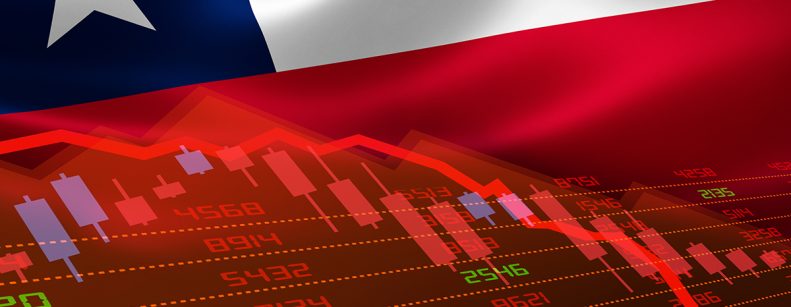
Throughout the week, I have repeatedly been asked the same question, over and over again, "Nathan, are we in a recession?". This is due to the publication of the The publication of the Imacec for June, which showed a -still- increase of 3.7% YoY, which was somewhat above our expectations, but below what we expected.which was somewhat above our expectations, but below what the market expected. Perhaps you think that the question does not make much sense, since the variation continues to be positive, but there are certain aspects that could give some support to the concern.
I think that the first thing we have to understand is that the Chilean economy is in a the Chilean economy is in a frank process of deceleration, which did not begin this month, but rather since approximately the end of last year.but rather since approximately the end of last year.
It is true that the growth rates, at that time, were of considerable magnitude, but quite sustained on very low bases of comparison, which has gradually begun to be less true. Thus, without a too drastic worsening, we have gone from seeing Imacec increases above 9.0% YoY to the recently reported below 4.0%. Going a little further, it is very likely that July's figure could be the last positive one in this cycle, evidencing year-on-year declines from August onwards, and quite certainly in September, which would continue until the end of the year.
Secondly, although the economy would have avoided falling into a technical recession during the second quarter (subject, in any case, to possible revisions of the series once the National Accounts for the period are published), not meeting a statistical condition should not cloud the economic assessment behind it. Not having had two consecutive quarters of falls in the margin does not mean that everything is fine, while the opposite would not have meant that everything is bad. The reality is more complex than that. Investment has shown a significant slowdown, with consumption that, while still more resilient, is heading for something similar once the sources of financing for the 2021 boom have been exhausted.This, coupled with a labor market that has stopped creating jobs and pays wages that are rising less than the cost of living.
Finally, and without contradicting my previous point, if we evaluate the national economy by removing its mining component (an important component, but much more volatile than the rest of the sectors), we would have met the requirement to be called in a technical recession, the requirement to call ourselves in a technical recession would have been met. We do not think that this would be as deep as the one we saw after (i) the social outbreak and (ii) the most critical period of the pandemic, but it would be important enough to bring us down to earth and make us realize what are our real capacities to grow in the medium and long term. I mention this because in 2023 things would not be much better, growth rates would be mediocre at best and we would most likely end up in the red. So, we are not in a recession, but we are probably going to be in a recession and, after that, we will recover very slowly.